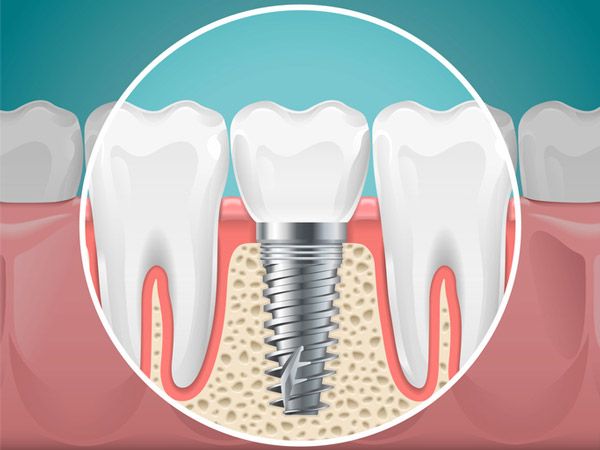
If you're looking for ways to save money in your home, you're in the right place. In this article, we will give you practical tips to reduce your expenses and improve your budget. Many times, we spend more than we need and don't realize it until it's too late. But don't worry, with a little planning and simple habits you can save money and improve your financial situation.
Analyze monthly expenses
The first thing we must do to reduce expenses in our home is to carefully analyze our monthly expenses. This involves reviewing and classifying all bills, receipts and pay stubs for the last few months.
Once we have a clear idea of what we are spending our money on, we can easily identify those areas where we can cut back. For example, if we are spending too much money on streaming services or dining out, we can look for cheaper alternatives or reduce the frequency with which we do these activities.
It is also important to keep in mind those fixed expenses, such as rent or mortgage, which can represent a large part of our budget. In these cases, it may be useful to negotiate with suppliers or look for more economical options.
Establish a budget
To reduce expenses in your home, the first thing you should do is establish a clear and realistic budget. This will allow you to have total control over your finances and avoid unnecessary expenses.
When setting your budget, be sure to include all your income and expenses. Divide your expenses into categories such as food, transportation, bills, entertainment, etc.
Once you have a clear budget, it is important to stick to it as much as possible. There are always unforeseen and unexpected expenses, but try to stick to your budget for the long term.
Change spending habits
One of the best ways to reduce your household expenses and improve your budget is to change your spending habits. Here are some ideas:
- Buy products on sale and in bulk.
- Reduce the amount of meat you consume and opt for more economical foods such as legumes or vegetables.
- Use leftover food to make new dishes or freeze it for another day.
- Compare prices before buying and always choose the most economical option.
- Save energy by turning off appliances you are not using.
- Use water sparingly and repair any leaks or breakdowns.
Save on utilities
One way to reduce your household expenses is to save on utilities. Here are some tips:
- Switch to cheaper service providers, comparing prices and offers.
- Reduce electricity consumption by turning off electronics when not in use and switching to energy-saving light bulbs.
- Save water by installing flow restrictors on faucets and showerheads and repairing leaks.
- Use low-temperature wash programs and fill the washing machine to the maximum to save energy and water.
- Evaluate whether you really need certain services, such as cable TV or high-speed Internet, and whether you can do without them or switch to more economical options.
By putting these tips into practice, you can significantly reduce your utility expenses and improve your monthly budget.
Review contracts and bills
One of the biggest expenses in the home are contracts for services such as telephone, internet, cable TV and energy. Review the contracts you currently have and compare with other options in the market. You may find better deals and save money.
It is also important to review the bills for these services to verify that they are charging what was agreed and that there are no additional charges without your knowledge. If you find any errors, contact the company to fix them and make sure you pay only what is due.
Buying seasonal and wholesale produce
One way to reduce expenses in your home is to buy seasonal and wholesale products. Seasonal products are usually cheaper and fresher, since they do not have to be imported from distant countries. In addition, when buying in bulk you can get significant discounts, especially on non-perishable foods such as rice, pasta, oil and other pantry products.
It is important to plan your shopping and make a list of what you need to avoid overbuying or wasting food. You can also take advantage of supermarket offers and buy products that are on sale.
Another option is to look for cheaper alternatives to name-brand products. Many times generic products offer the same quality at a much lower price.
Reduce transportation and mobility expenses
Another expense that weighs heavily on the family budget is transportation and mobility. Here are some tips to reduce these expenses:
- Use the bicycle or walk: If possible, use the bicycle or walk short distances. In addition to improving your health, you will save money on transportation.
- Carpool: If you have a long commute, try carpooling with someone. There are many websites and apps that allow you to connect with people doing the same route as you.
- Use public transportation: If you have no choice but to use public transportation, look for reduced fares or monthly passes that will save you money.
- Learn to drive efficiently: Driving efficiently and fuel-efficiently can significantly reduce your gas costs.
Don't underestimate the impact these small changes can have on your long-term budget - start taking action today!
Recycle and reuse before you buy new
One of the best ways to reduce expenses in your home is to reuse and recycle what you already have instead of buying new. Before you go to the store, think about whether you really need to buy something or if you can find a way to use what you already have.
It's also important to separate your waste at home and take it to the nearest recycling center. This way, you will not only be contributing to the environment, but also saving on garbage costs.
In addition, you can look for creative ways to reuse objects instead of throwing them away. For example, an empty jar can become a vase or a pencil holder, an old T-shirt can be turned into cleaning rags and so on. The only limitation is your imagination.
Remember that every time you reuse or recycle something, you are saving money and natural resources at the same time.
Find alternatives for leisure and entertainment
One way to reduce expenses at home is to look for alternatives for leisure and entertainment. Instead of going out to restaurants or bars, you can cook at home and organize get-togethers with friends and family. You can also explore free options in the city, such as parks, museums, outdoor concerts, among others.
Another option is to take advantage of subscriptions to music and movie streaming services instead of paying for cable or satellite TV. In addition, it is important to establish an entertainment budget each month and stick to it to avoid overspending.
Additional tips for reducing household expenses
- 1. Shop smart: compare prices, use coupons and take advantage of bargains.
- 2. Reduce electricity consumption: turn off appliances when not in use, use LED light bulbs and adjust the thermostat temperature.
- 3. Save water: fix water leaks, use a bucket instead of a hose to wash the car and reduce shower time.
- 4. Make your own food: instead of buying fast food or eating out.
- 5. Buy clothes and other items: used at thrift stores or online.
- 6. Use public transportation: or walk instead of using the car all the time.
- 7. Cancel magazine subscriptions: cable TV or other services you don't use often.
- 8. Take advantage of libraries: public libraries to read books or watch movies.
- 9. Make economical plans: for vacations or breaks at home.
- 10. Use applications: or digital tools to keep an accurate record of your expenses and better control your monthly budget.
Follow these simple tips and you will be reducing your expenses and improving your home economy in no time.






